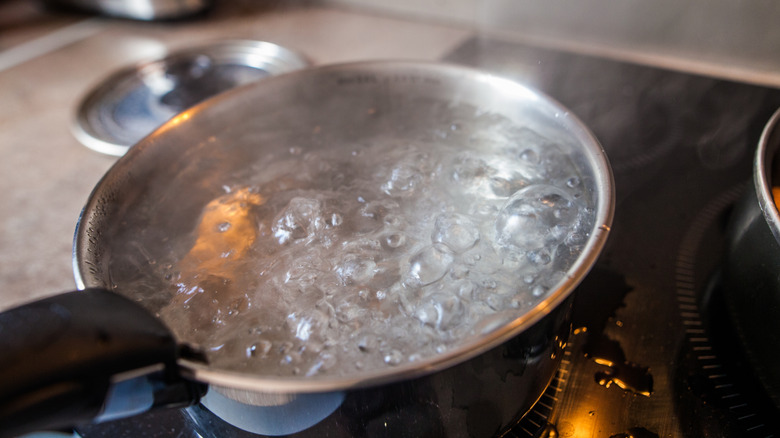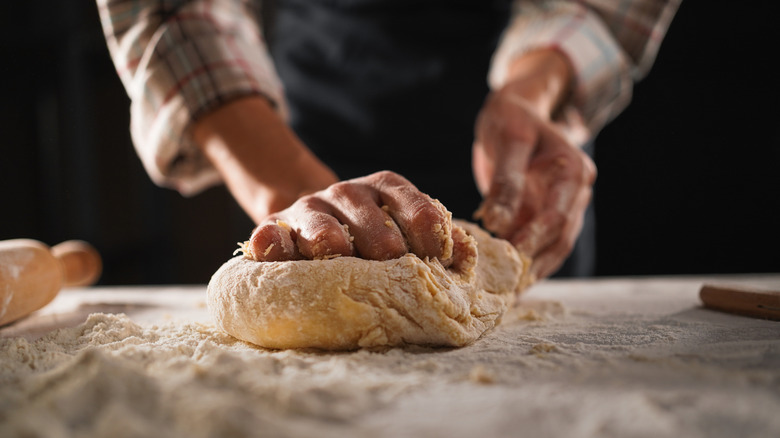How Hard Water Can Impact The Quality Of Your Cooking
Some bakeries and pizzerias claim to import the water they use, citing that the levels of certain minerals truly affect the dough. In fact, a company called The New York WaterMaker supplies water machines to these types of businesses to mimic the tap water from New York, which is said to be one of the best for baking, particularly in making bagels. If some professional bakers take water so seriously, should the average home chef be concerned about how the tap water is affecting their cooking and baking?
To understand, you'll first need to know that water is generally divided into two categories: hard and soft. You may have heard of this differentiation in terms of hair care — soft water is always touted as being better to shower in because it doesn't contain high levels of minerals that can be damaging to hair. Hard water contains high levels of calcium and magnesium, while soft water is free of these salts. The tap water coming out of your faucet — if it doesn't have a filter — is likely hard water, as 85% of American homes have this naturally, while New York tap water is mostly soft water.
So, when it comes to cooking, can hard water cause problems? Yes and no. Know that hard water is safe to drink and cook with, so it's not a matter of health at stake here. However, the salts present in hard water can affect the flavor and texture of some cooked foods.
Foods affected by hard water
If you've ever sipped on a particularly bitter cup of coffee or tea, it could be due to hard water. Did you notice a slight film sitting on top of the hot drink? Again, this is likely a result of the water type. For this reason, filtered water is best for coffee and tea. In cooking, a similar effect can be observed in something like a soup, broth, or sauce. It's often not so noticeable, but more of a slightly off, mineral aftertaste. Adding a bit of vinegar or lemon juice can be helpful for balancing this out.
Hard water also takes longer to boil. If you're using unfiltered water from the tap, pasta will likely need to be boiled longer. Foods best cooked in water — whether it be vegetables, pasta, or rice — could also be denser if you mainly use hard water. The food that seems to be most affected by hard water is beans. Dried beans must be soaked before cooking, and with hard water, it's challenging to get them soft.
Baking is where the water being used matters most, as water is a key ingredient for many dough recipes. Hard water can help in some instances, as it can strengthen the gluten in dough, making a sturdier baked good. However, this can also be a problem. Hard water can cause too much density and toughness in a baked good that should be light and fluffy. Often, more yeast is added to compensate, but filtered water is considered ideal for baking.

